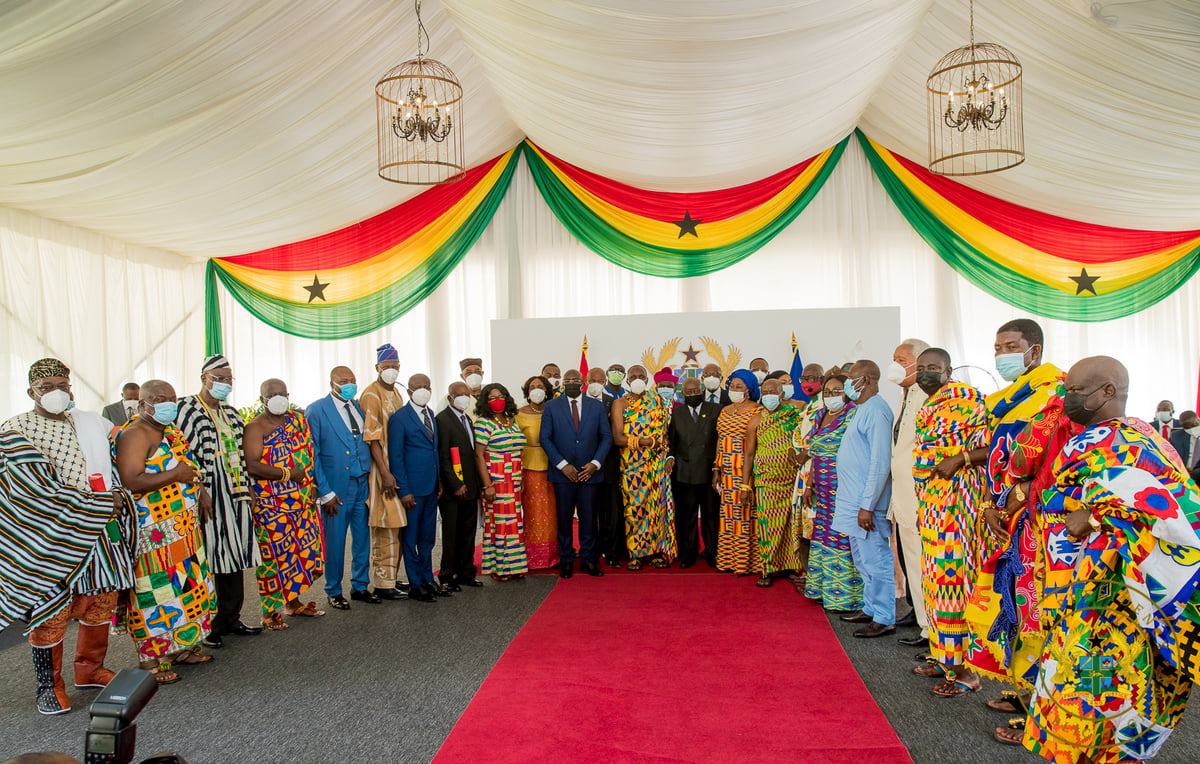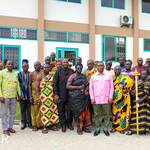Government is courting the support of traditional leaders who are custodians of lands and culture as a matter of urgency and necessity rise up and assume a frontal role in the fight against illegal mining.
Chiefs are the best way to provide legitimate advice and knowledge on the consequences of activities in their areas – and also curb the overwhelming amount of land cases pending before the courts with regard to mining.
Chiefs ought to be given a say in the activities of mining because they are accountable to the people and often bear the consequences of illegal mining activities.
Traditional leaders, especially paramount chiefs should be involved to advise and bring their knowledge to bear on the process.
After all, the lands belong to Nananom or families who are from the royal families.
However, traditional leaders say they do not have the authority to combat illegal mining in their respective traditional areas where miners have taken over lands and other natural reserves.
According to the traditional leaders, the miners claim to have operational permits from state agencies despite polluting river bodies and the environment.
Since the traditional rulers are not involved in the granting of the permits, it is difficult for them to ascertain the genuineness of the permits.
The traditional leaders argue that government has taken all the traditional powers that made them powerful to instill discipline in their traditional communities.
Article 257(6) of the 1992 Constitution states that every mineral in its natural state in, under or upon any land in Ghana, rivers, streams, water courses throughout Ghana, the exclusive economic zone and any area covered by the territorial sea or continental shelf is the property of the Republic of Ghana and shall be vested in the President on behalf of, and in trust for the people of Ghana.
This means that the owner of any land in Ghana is not the owner of any mineral in its natural state which he/she may find.
The law further provides that despite a right or title which a person may have in a land, upon or under which minerals are situated, a person shall not conduct activities on or over land in Ghana for the search, reconnaissance, prospecting, exploration or mining for a mineral unless the person has been granted a mineral right in accordance with the Minerals and Mining Act.
Therefore, regardless of the fact that you own the land on which the gold in its natural state is found, a mineral right must be granted to you to deal with it in any way.
To make matters a bit more complex for individuals, qualifications for mineral rights are limited to bodies incorporated under the Companies Code 1963 (Act 179), under the Incorporated Private Partnerships Act 1962 (Act 152) or under an enactment in force.
To sum it up, the land is yours but the mineral belong to the people of Ghana).
The Finder therefore, supports the call by traditional leaders for a Legislative Instrument (LI) to empower chiefs in fighting illegal mining in the country.
They must be involved before the licence is granted, and they must also be involved in managing and enforcing the laws.
The government must seek the consent of traditional authorities before granting concessions to mining companies because as it stands now, illegal miners cannot be detected as they all claim to have documents covering their operations.
The Finder is certain that such collaboration will stop some of the suspicions that people have about our traditional rulers and the role that they have played in the sale of lands to illegal miners.
We believe such a close collaboration between the regulatory agencies and traditional rulers will go a long way to help curtail and end this menace that is destroying the country.
- Tight Race For Next GIS Boss - 10 March 2025
- Church of Jesus Christ, Ga Mantse Foundation renovate Adabraka School - 27 June 2024
- Manufacturers, Trade Minister tussle over proposed cement price regulation - 26 June 2024

